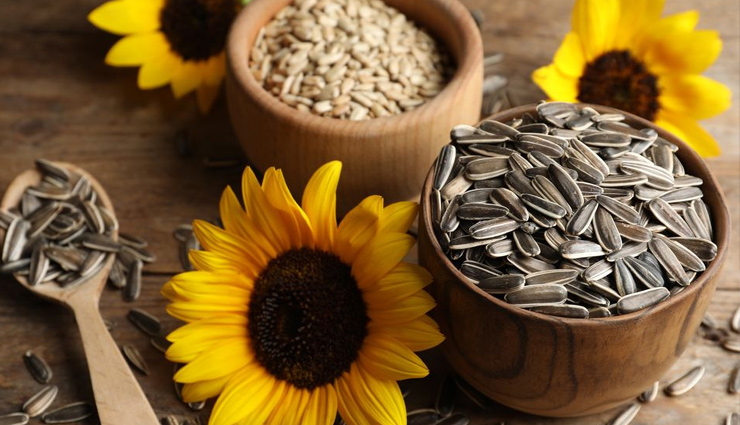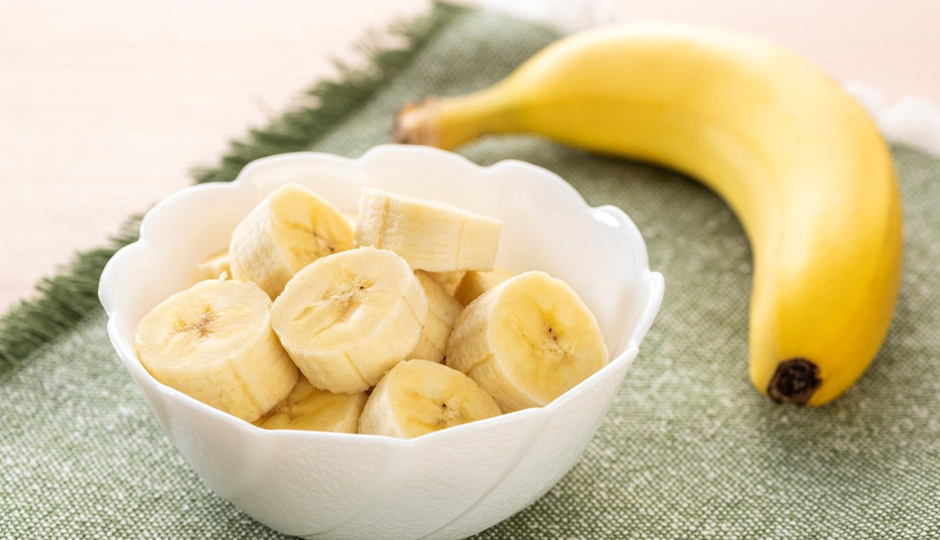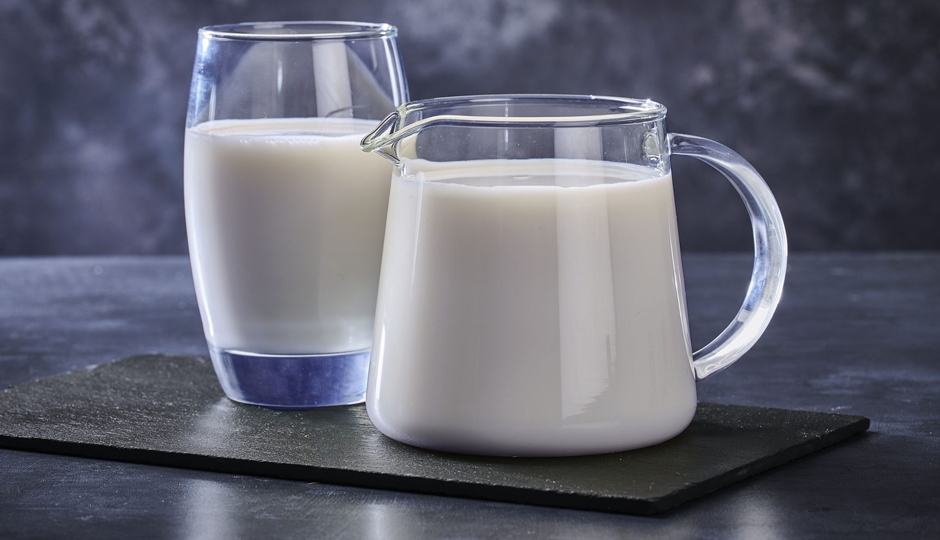- Home›
- Healthy Living›
- 8 Least Known Health Benefits Of Consuming Sunflower Seeds
8 Least Known Health Benefits Of Consuming Sunflower Seeds
By: Priyanka Maheshwari Fri, 29 Mar 2024 3:56:27

Sunflower seeds, the edible seeds harvested from the vibrant sunflower plant, hold a unique position in the realm of both culinary delights and nutritional powerhouses. These small, tear-shaped seeds boast a rich history dating back thousands of years, with evidence suggesting their cultivation and consumption by indigenous peoples in North and South America long before the arrival of European settlers.
Known scientifically as Helianthus annuus, sunflowers are renowned not only for their radiant appearance, with their large, yellow-golden flower heads tracking the sun's movement throughout the day, but also for the bounty they yield in the form of nutritious seeds.
Sunflower seeds offer a myriad of health benefits, packing a concentrated dose of essential nutrients within their tiny kernels. They are an excellent source of healthy fats, including monounsaturated and polyunsaturated fats, which are essential for maintaining heart health and aiding in the absorption of fat-soluble vitamins. Additionally, sunflower seeds are rich in protein, dietary fiber, vitamins (such as vitamin E, thiamine, and folate), and minerals (including magnesium, selenium, and zinc), making them a valuable addition to a balanced diet.
Beyond their nutritional value, sunflower seeds are celebrated for their versatility in culinary applications. They can be enjoyed in various forms, whether raw or roasted, salted or unsalted, shelled or unshelled. They add a delightful crunch and nutty flavor to salads, baked goods, granolas, trail mixes, and even as a garnish for savory dishes.
Moreover, sunflower seeds have found their place in the realm of alternative diets, such as vegan and vegetarian lifestyles, as they provide a plant-based source of protein and essential nutrients. They also serve as a popular snack option for those seeking healthier alternatives to traditional processed snacks.
In addition to their culinary and nutritional significance, sunflower seeds hold cultural importance in many societies around the world. They have been utilized in traditional medicine practices and folklore, attributed with various health benefits and symbolic meanings.

# Rich in Healthy Fats
Sunflower seeds are a great source of healthy fats, including monounsaturated and polyunsaturated fats, such as omega-6 fatty acids. These fats are essential for maintaining healthy cholesterol levels, reducing the risk of cardiovascular diseases, and supporting overall heart health.

# High in Protein
Sunflower seeds are a good plant-based source of protein, which is crucial for muscle repair and growth, as well as for supporting various bodily functions. Incorporating protein-rich foods like sunflower seeds into your diet can help you feel fuller for longer and support weight management.
# Packed with Nutrients
Sunflower seeds are rich in essential vitamins and minerals, including vitamin E, thiamine (vitamin B1), folate (vitamin B9), magnesium, selenium, and zinc. These nutrients play important roles in various bodily processes, such as immune function, energy metabolism, nerve function, and bone health.
# Antioxidant Properties
Sunflower seeds contain antioxidants, such as vitamin E and selenium, which help protect cells from damage caused by free radicals. Antioxidants play a crucial role in reducing the risk of chronic diseases, including cancer and heart disease, and slowing down the aging process.

# Support Brain Health
The high levels of vitamin E in sunflower seeds are particularly beneficial for brain health. Vitamin E is an antioxidant that helps protect brain cells from oxidative stress and may reduce the risk of cognitive decline and neurodegenerative diseases, such as Alzheimer's disease.

# Regulate Blood Sugar Levels
Sunflower seeds contain fiber, protein, and healthy fats, which can help stabilize blood sugar levels and reduce the risk of insulin resistance and type 2 diabetes. Including sunflower seeds as part of a balanced diet may help improve insulin sensitivity and glycemic control.

# Promote Digestive Health
The dietary fiber found in sunflower seeds supports digestive health by promoting regular bowel movements, preventing constipation, and maintaining a healthy gut microbiota. Fiber also helps regulate cholesterol levels and may reduce the risk of colon cancer.

# Support Skin Health
The vitamin E content in sunflower seeds contributes to healthy skin by protecting it from damage caused by UV radiation, pollution, and other environmental factors. Vitamin E also helps maintain skin moisture and elasticity, promoting a youthful complexion.





